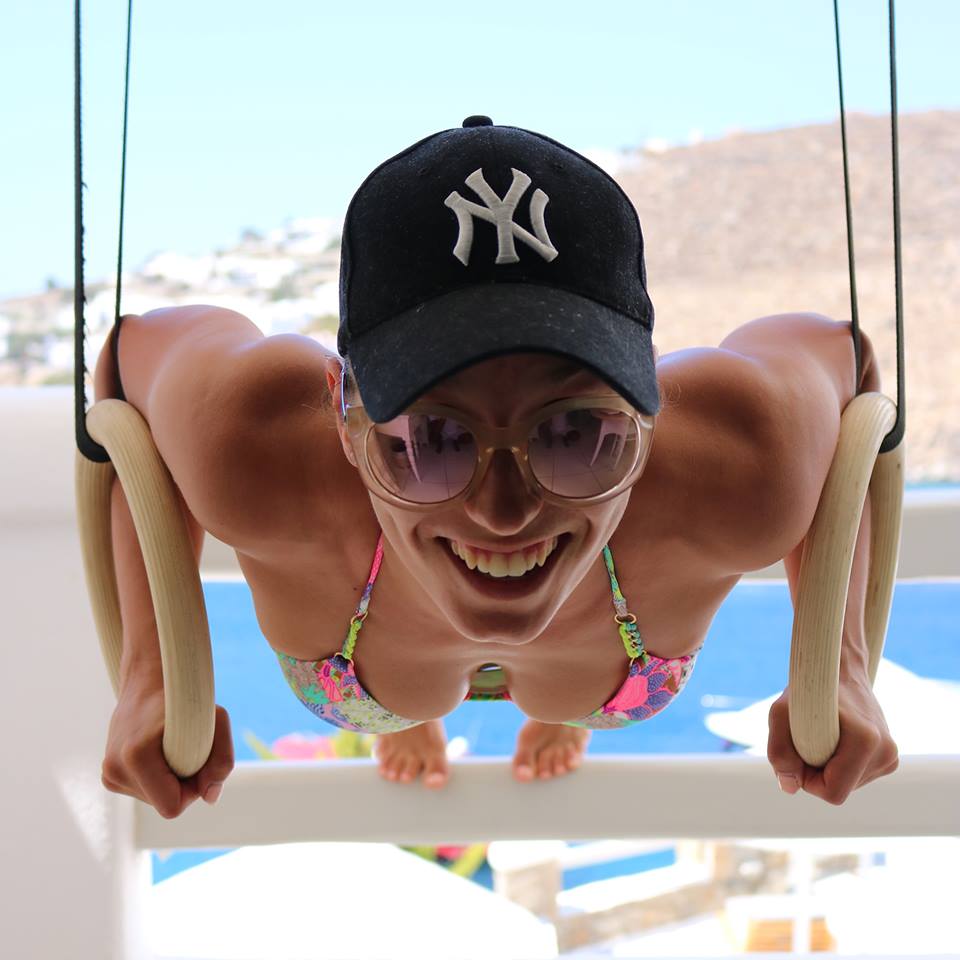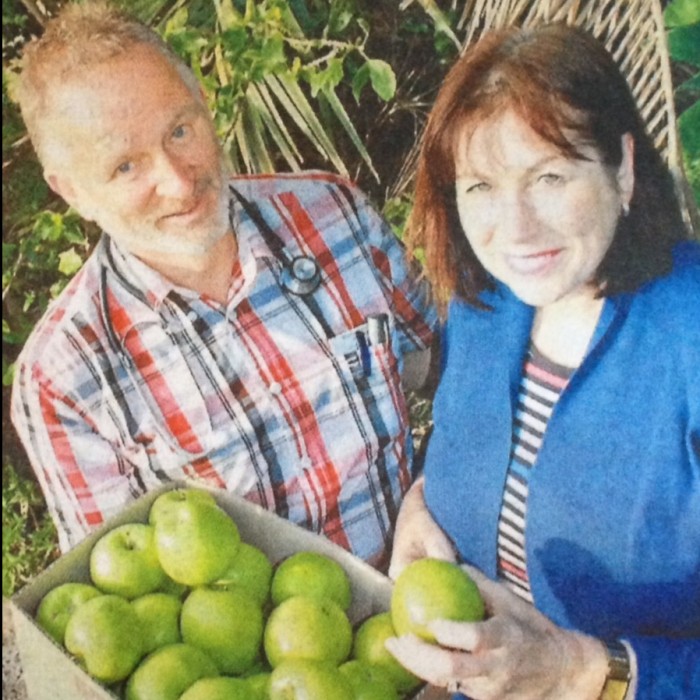May 29, 2017
Peter Romero
To wrap up the month of May we have Dr Peter Romero giving us the insights on all things health, turning vegan, and alternative medicine. It’s very interesting to hear from a doctor who is very progressive and and open to preventative and holistic health. We wish all doctors could think this way! In any case, let’s jump straight into this interview and hear about how the Western Medicine side are thinking.
Can you tell us a little about your background and how you decided to get into medicine?
I was born in Coffs Harbour in 1958 and lived on a small farm in Bonville growing up. I attended a local 3 teacher primary school and then public high school. I had appendicitis aged11 and that and a wish to do something to help others and have an interesting job made me decide to be a doctor at age 12. I started medicine before my 18th birthday and graduated from Sydney University before my 23 birthday. I spent 4 years residency at Westmead Hospital where I decided that rural general practice was what I wanted to do. I am now in my 32nd year of private practice in Nelson Bay.
Western Medicine has obviously come a long way in accepting the more alternative and Eastern forms of medicine, but where do you think the future of Western Medicine will go?
That may be an assumption from talking to me. I am not sure that it has become all that more accepting overall. Western medicine on the face of it tries to adopt the “Scientific Approach” for treatment. Unfortunately it is all about the treatment of disease and not about health promotion. In general we treat a society that believes that we can cure a lot more than we can, and believes there must be a pill for everything. For example, many smokers with emphysema can’t believe there is no cure.
Yes it seems the difference between Western and Eastern medicine is treating symptoms versus finding the cause respectively! There’s definitely room to grow in Western medicine for looking to be more preventative rather than reactive.
Do you think there’s a place for doctors to be suggesting these more alternative methods of healing to patients such as certain dietary changes or mindfulness and meditation exercises to help with anxiety and depression?
YES. 70% of the disease we treat is caused by lifestyle. Poor diet ( despite everyone believing the contrary), lack of exercise, being overweight (2/3 of the population), plus stress, poor rest and sleep, are all lifestyle factors contributing to 70% of diseases. Most people do not realize that diet, lack of exercise and stress are responsible for much of the depression and anxiety that we experience. Type 2 Diabetes and Ischaemic Heart Disease are increasing exponentially and are totally preventable with lifestyle changes. We can be doing this work as doctors to work to heal this rather than just give another pill.
70% is such a big number! It almost seems like we’re trying to make ourselves sick with all those areas you mentioned! What relationship do you see doctors having with holistic health coaches in the future? I.e. is it congruous and work in unison or is it more at odds with each other?
Many fail to appreciate there is a continuum from optimal health through to only fair health before the onset of disease. I am frustrated that so many settle for mediocre instead of aiming for abundant health. Many wait for a crisis before valuing their health. Society needs re-education. Doctors can help but so few listen from my experience. I am hoping for more prevention. I value holistic health coaches but too few in society do. Doctors will go on treating disease much of which could have been prevented. Health coaches can provide information and motivation in that preventive health sphere.
It’s definitely something that I think many health coaches can relate to in that frustration of settling for mediocre health. That’s a great way to put the relationship between doctors and health coaches – one of complimenting each other but there is a long way to go before Western medicine as a whole accepts the role that health coaches play! They’re not all as forward thinking and prevention focused as you.
We understand that you’re a vegan going on almost four years now? What made you decide to make that change and what differences have you seen in your health from it?
Prior to switching to an almost completely “Plants as grown” diet almost 4 years ago I was semi- vegetarian (remember that beer and chips is vegan but not healthy!). I then read “The China Study” and watched the DVD “Forks over Knives” and then became involved in the CHIP- Complete Health Improvement Program. I lost 5 kg without limiting food volume and got a whole lot more energy and felt younger with less aches and pains.
There is so much information out there now on what the benefits are of cutting out animal protein and you just listed some great sources there. It’s all well and good to read something or watch a documentary on WHY we should do it, but it’s HOW to make the switch that often trips people up. What would be your top tips for someone trying to start a vegetarian or vegan lifestyle? How do you make the change sustainably?
There are 2 ways; see which works for you. The easiest seems to be “Double the Good and Halve the Bad” and just keep taking steps in the right direction. The other is just “Jump in the Deep End”. Although this seems more radical it takes 21 days for our taste buds to change. Get a coach or attend a program. Involve a friend, keep a diary. Involve exercise and meditation at the same time so you are making changes on the whole rather than just your diet.
Ok so finally, what is your most important advice to your patients who are looking to improve their overall health?
Lots of fruit and vegetables; 5 serves may not be enough.
Move; the more the better. Find something you can enjoy.
Sorry that’s 2 but they are both so important!

This week we’re interviewing Kat Jacob. Kat’s a passionate personal trainer who is doing some amazing things with her own training. She works with many corporate clients, so this week we’re talking to her about how exercise can help relieve stress and what types of exercise are best for that whether you’re a beginner or more advanced.
So let’s jump right into this interview with Kat:

So Kat, tell us a little about your background and how you became a personal trainer?
I’ve been passionate about health and fitness for as long as I can remember; I always loved being active and been interested in nutrition. Over the last few years I found that my ‘actual’ job – Event Producer – was impacting more and more on that lifestyle; the years of working long hours and late nights started to take its toll and I became stressed and sick.
I started questioning whether I was in the right job – I was producing amazing events, but it started to feel meaningless and the risk of giving up a safe income and changing careers very quickly became less scary than the thought of staying in the events industry for the rest of my life.
I happened to be introduced to the right person at around that time, which led me to take the leap and start on my journey to becoming a PT. I have now quit the events industry altogether and can honestly say it was the best decision I’ve made – there are challenging times and the money is nowhere near the same yet, but I am a much happier & healthier person and finally feel like I’m helping people change their lives in a positive way.
That certainly is a leap of faith! You now do a range of different training regimes yourself? Can you tell us a little more about them and why you do so many?
I love having variety in my workouts – it keeps me motivated and to me is much more fun than doing the same thing every day. I’m also a big believer in that we need to keep challenging our bodies to get stronger & fitter – by exposing it to a variety of activities & exercises we allow our bodies to grow in a much broader way. It also helps aid recovery between big sessions to give those movement patterns you just worked very hard a break and get the body moving in a different way.
The majority of my training is based on Gymnastic Strength Training – lots of handstands, bodyweight strength training, rings etc. with a big focus on mobility. There is a lot of variety within this style of training, and I love the strategic approach of working towards set goals (i.e. a muscle up) – it pushes me to get better and work hard. I like mixing things up on my rest days with touch football, surfing / swimming, hiking or the odd run.
Wow that certainly is a lot! How do you keep up with all your different training schedules with so much going on? What’s your secret tip for fitting it all in?
I’m actually German and used to be an event producer so being organised comes with the territory! But in all seriousness, for me it’s all about planning ahead and having a set schedule of what to do when & where. I plan my sessions in 6 week cycles, and each session is written down so when I go to the gym I just need to open up that notebook and know exactly what I’ve got to do that day to stay on track.
It means I don’t have to think about it when I get there but can focus my energy on the session, and it holds me accountable on those days where I’m feeling tired. I also meet up with a mate a couple of times a week and we train together – we teach each other new stuff, play with different exercises, spot each other and just generally make sure the other one pushes (or rests!) when we need to.
That’s a great tip about planning your workouts in advance. It takes the effort out of trying to think what you’re going to do when you actually get to the gym which sometimes feels like half the workout!
So this month we’re talking a lot about stress and mental health. Can you tell us how exercise helps with that?
Exercise is proven to reduce our bodies stress hormones – adrenaline and cortisol – and stimulates the production of endorphins, the chemicals in our brain that act as natural pain killers and help lift our mood.
Exercise can also help take your mind off things and shift your focus, and some exercises can in fact be a form of moving meditation – running or long power walks tend to do that for me! It can be a great way to get in some ‘me-time’ to create the space to think things through or just find the time to breather and switch off.
Exercising regularly makes you want to eat healthier too, which in turn helps reducing the stress, as your body will be fuelled with the right nutrients to help cope with stress.
For some statistics on the connection between physical exercise and mental health, check out the Waves of Wellness Foundation. Interestingly, research has shown that physical activities can sometimes be more beneficial for patients with mental health than a strictly clinical approach; after working with the ‘One Wave’ charity Joel Pilgrim founded ‘Waves of Wellness’ based on this approach, a non for profit that helps people struggling with mental health to find an outlet through surf therapy.
Exercise helps people to feel better about themselves, and the community & their support that comes with sports and exercise groups can provide a sense of belonging too.
So there are a lot of benefits and some great statistics to back it up!
One of the biggest concerns our clients tell us is that they don’t have enough TIME to fit in exercise. How would you overcome that?
I think the most important thing is to find a type of exercise you love – if you really enjoy something and it makes you happy, you will find it much easier to make the time.
The gym isn’t for everyone – try team sports, swimming, cycling, yoga, tennis etc. and figure out which activity makes exercise fun and not just a chore you feel obliged to do for health reasons.
Also, think about why you want to exercise – to feel healthier, to be able to keep up with your kids, or because you want to learn a new skill? It’ll help your motivation and keep you going on the days where it gets hard.
That’s so true, you have to find something you love. Exercise can’t be seen as another chore in our lives – we just won’t do it. Plus we work with clients consistently to re-identify their ‘why’ for all their goals. It’s just one of the best ways to keep them motivated and pushing forward!
So what are the best exercises to be doing to get in a quick, efficient and sweat inducing workout?
My go to for a quick and efficient workout is a bodyweight circuit (think lots of animal movements like bear crawls, ape walks, frog squats, caterpillar walks and bodyweight pushing & pulling exercises. followed by some max sprint efforts –it’ll get your heart pumping & the sweat going while working your entire body.
And what if I’m a beginner and never really exercised before, is there anything different that I should be doing?
The most important thing is to ease yourself into it – you don’t want to go so hard that you’re hurting for days as that’s the best way to stop yourself from wanting to go back.
If you’re unsure about technique or completely new to something, I’d recommend taking a few classes to learn the ropes and make sure you’re getting it right from the outset. It’s harder to fix bad habits than learning from scratch, and the right technique can make the difference between reaping the benefits or getting injured.
Stuart McGill, a professor of spine mechanics said “First move well, then move often.” and I 100% agree with that statement. Other than that – get out there, try lots of different things and find the kind of exercise that makes you keep coming back.
That’s it isn’t it. Just try something! But don’t go too hard. So many people go out really hard in that first week and when they can’t walk think “I’m never doing that again!”. It’s just best to build it up.
Ok so the other end of the spectrum, what if I’m quite advanced, how can I keep pushing the intensity and make sure I’m making progress?
Add some variety to your workouts by taking it into a different environment (i.e. outdoors or vice versa), add new movements into your sessions, look at ways to achieve your goals by trying a new approach.
Let’s say you want to learn how to handstand – don’t just keep kicking up again and again, look at what other skills and strength you might need to achieve that handstand and work on those – for example your shoulder mobility, core strength etc. It adds diversity while still working towards your main goal, helping to get there faster.
Another option is to find a training partner or group, a bit of healthy competition can go a long way in stepping up your game and it may expose you to some new ideas.
Yes healthy competition is definitely a great way to up the anti! We’ve talked about that previously for finding your training soulmate!
Ok final question, what would be your top three tips for a corporate worker trying to integrate three exercise sessions during the week?
One thing that can make a big difference is getting the exercise in first thing in the morning – that way it’s done and no matter what the day throws at you or how tired you are after work, you will have had your exercise. Plus it’s a nice way to start the day rather than rolling from bed onto a chair and sit down right away, it’ll get your body and your mind going.
I know it can be challenging when you work long hours or have kids to get back to, so you could try to incorporate exercise in your day in a way that makes it easy and doesn’t leave much room for excuses. When I was still in events, I used to run home from work at least a couple times a week – depending on the route I’d get a good 45 – 60min run in and with traffic taking the bus would’ve taken the same time. Or you could walk the first 5km before getting on the train home, cycle to and from work or give a lunchtime class a go. Travel a lot? Pack your trainers, most hotels have a gym & pool, or you can go for a walk and explore the area.
If your week gets the better of you, get moving on the weekends! If you have kids, get them involved – go for a bike ride, play soccer in the park…there are so many options. Find the most convenient option for your lifestyle and make it a part of your routine – trust me, you will be more productive as a result and feel better for it!
There’s always a way if you make it a priority right! Thanks so much Kat that was really helpful.
Well readers we hope you all got something useful out of that and you’re all going to kickstart your workouts to feel the benefits!

